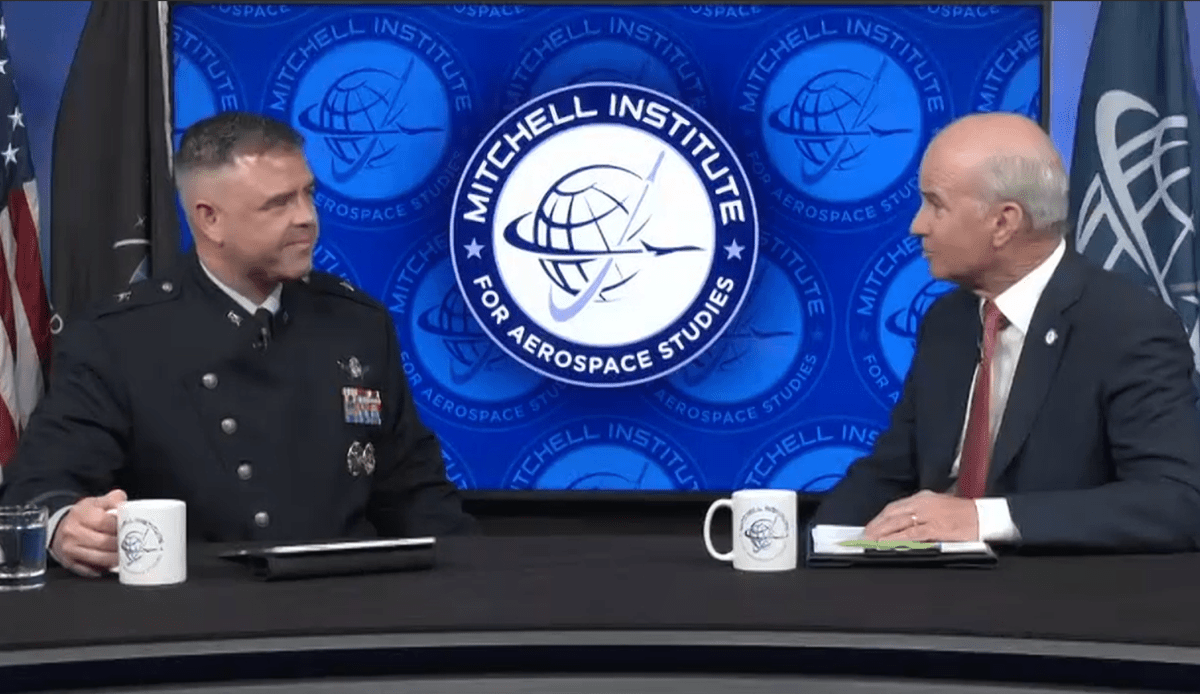WASHINGTON — As China continues to deploy advanced satellites in space, the U.S. Space Force is being increasingly called upon to bolster its presence in the Indo-Pacific, sparking debate over whether the nascent military branch is adequately equipped to address evolving threats in the region.
Brig. Gen. Anthony Mastalir, commander of U.S. Space Forces Indo-Pacific, said there is a rising need for space expertise and technology in the face of China’s rapid advancements. “Do we have everything that we need today? We’re working on it,” Mastalir said Oct. 22 at an event hosted by the Mitchell Institute for Aerospace Studies.
Space Forces Indo-Pacific, a Space Force component under U.S. Indo-Pacific Command, was established in late 2022 and tasked with planning and executing space operations across the region. These operations are critical to the Department of Defense’s broader objectives in the Indo-Pacific, especially as space becomes a contested domain between global powers.
Mastalir argued that more resources are needed for the space branch. The U.S. Space Force, the smallest military branch, is operating with just under 10,000 personnel — referred to as guardians — and accounts for just over 3% of the DoD’s budget. “The Space Force doesn’t have the guardians or the budget that it needs,” he said. This, despite space being “critical to all the other domains,” referring to how space operations support land, sea, air and cyber efforts.
Mastalir echoed recent comments by other senior officials, including the Space Force’s director of programs Brig. Gen. Brian Denaro and Air Force Secretary Frank Kendall. Both said the U.S. should ramp up investments to keep pace with China’s growing space program and its development of anti-satellite weapons designed to disrupt U.S. operations.
A Space Force presence in the region is becoming more relevant given the geopolitical landscape in the Indo-Pacific, said Mastalir, pointing to an increased “demand signal” for space defense tactics, satellite services and operational expertise. “When you stand up a component headquarters and start to integrate, especially during competition… you need a lot of other specialties that, in some cases, the Space Force doesn’t have,” he added.
A key concern is having adequate training for guardians in orbital warfare — the use of satellites and other space-based assets to engage adversaries in space. Mastalir compared the situation to deploying advanced aircraft like the F-35 but being unable to train with it. “If you don’t have the kit and the time to train… it’s like delivering an F-35 and having to keep it in a hanger and not be able to fly it,” he said.
Space Force reaching milestoneThe Space Force is approaching its fifth anniversary, and discussions about its future have come to the forefront. Retired Gen. David “DT” Thompson, former vice chief of space operations, said there is a gap between the branch’s mission and its resources despite increased funding over the past few years.
In an interview with SpaceNews, Thompson said that given budget constraints, the Space Force would benefit from closer collaboration with the private sector to stimulate innovation. He said the integration of commercial space capabilities into military operations could significantly enhance the effectiveness of U.S. space strategies.
One pressing need in the Indo-Pacific, Thompson noted, is for tactical space surveillance to track ships and other targets across vast oceanic expanses. “What we used to do from the air, we now have to do from space,” Thompson said, pointing to the growing need for advanced space sensors capable of delivering real-time intelligence to U.S. forces.
But while private industry is developing new technologies at a rapid pace, the U.S. government has been slow to adapt. “The Space Force, the Department of Defense, really the entire government still don’t have the processes in place to move at the speed of innovation that we’re seeing in the private sector,” said Thompson.
Navigating policy debatesThompson also pointed to a broader issue — public understanding of what the Space Force does and the policies surrounding its operations. “We say space control, we say space superiority, but most people don’t know what that means,” he said, calling for more transparency in how the U.S. communicates its space operations.
“It’s time for us to be able to talk about that kind of stuff in an unclassified way,” he added. The role of space in national security, Thompson said, is a critical policy debate that requires greater engagement from political leaders and the public.
